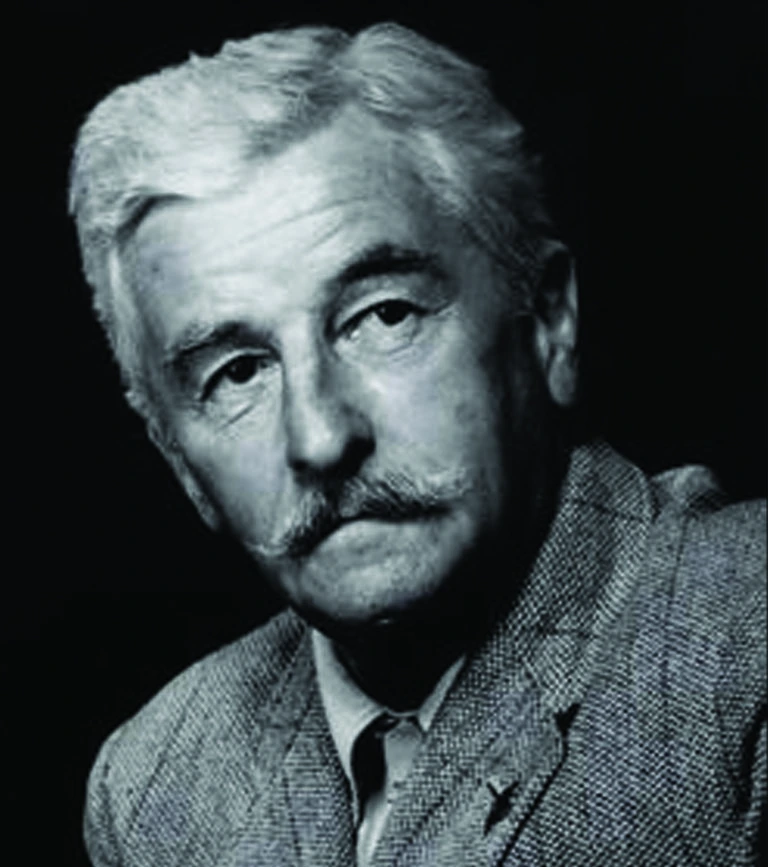A Southern writer through and through, William Cuthbert Falkner (the original spelling of his last name) was born in the small town of New Albany, Mississippi, on September 25, 1897.
His parents, Murry Falkner and Maud Butler Faulkner, named him after his paternal great-grandfather, William Clark Falkner, an adventurous and shrewd man who seven years prior was shot dead in the town square of Ripley, Mississippi.
The grandeur of the “Old Colonel,” as almost everyone called him, loomed large in the minds of William Clark Falkner’s children and grandchildren. William Falkner, held tightly to his great-grandfather’s legacy, writing about him in his earliest novels set in the American South.
Faulkner began writing about the places and people of his childhood, developing a great many colorful characters based on real people he had grown up with or heard about, including his great-grandfather, William Clark Falkner.
For his famous 1929 novel, The Sound and the Fury, he developed the fictional Yoknapatawpha County—a place nearly identical to Lafayette County, in which Oxford, Mississippi, is located. A year later, in 1930, Faulkner released As I Lay Dying.
Faulkner became known for his faithful and accurate dictation of Southern speech. He also boldly illuminated social issues that many American writers left in the dark, including slavery, the “good old boys” club and Southern aristocracy.
In 1931, after much deliberation, Faulkner decided to publish Sanctuary, a story that focused on the rape and kidnapping of a young woman at Ole Miss.
It shocked and appalled some readers, but it was a commercial success and a critical breakthrough for his career. Years later, in 1950, he published a sequel that was a mix of conventional prose and play forms, Requiem for a Nun.
Faulkner’s next novel, Light in August (1932), tells the story of Yoknapatawpha County outcasts.
In it, he introduces his readers to Joe Christmas, a man of uncertain racial makeup; Joanna Burden, a woman who supports voting rights for blacks and later is brutally murdered; Lena Grove, an alert and determined young woman in search of her baby’s father; and Rev.
Gail Hightower, a man besieged by visions. Time magazine listed it—along with The Sound and the Fury—as one of the 100 best English-language novels from 1923 to 2005.
One of Faulkner’s greatest professional moments came when he was awarded the 1949 Nobel Prize in Literature, receiving the award the following year.
The committee deemed him one of the most important writers of American letters. This attention brought him more awards, including the National Book Award for Fiction for Collected Stories and the Legion of Honor in New Orleans.
He also won the 1951 National Book Award for The Collected Stories of William Faulkner. A few years later, Faulkner was awarded the 1955 Pulitzer Prize in Fiction along with another National Book Award for his novel A Fable, set in France during WWI.
In January 1961, Faulkner willed all his major manuscripts and many of his personal papers to the William Faulkner Foundation at the University of Virginia.
On July 6, 1962, coincidentally the same date as the Old Colonel’s birthday, William Faulkner died of a heart attack. He was posthumously awarded his second Pulitzer in 1963 for The Reivers.
Faulkner created an impressive literary legacy and remains a revered writer of the rural American South, having expertly captured the immense complexities of both the region’s beauty and its dark past.

William Faulkner
September 25, 1897
July 6, 1962 (aged 64)